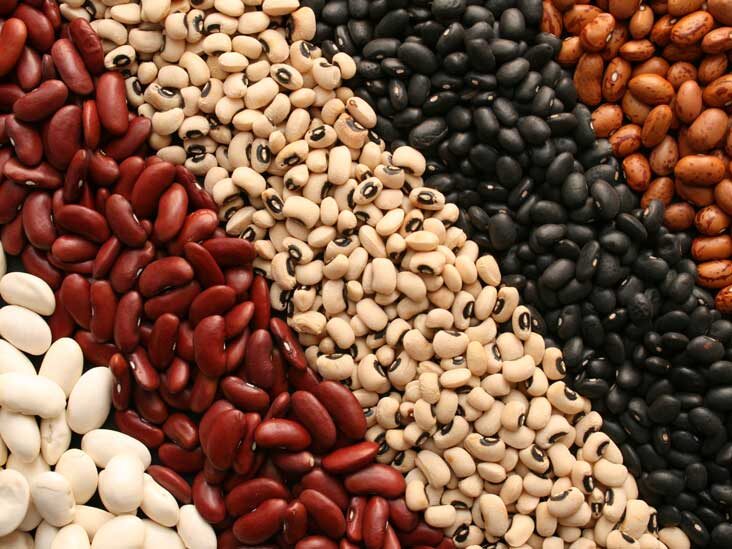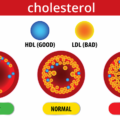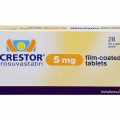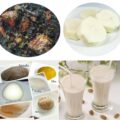According to Mayo Clinic, your body needs cholesterol to build healthy cells, but high levels of cholesterol can increase your risk of heart disease. With high cholesterol, you can develop fatty deposits in your blood vessels. Eventually, these deposits grow, making it difficult for enough blood to flow through your arteries. Sometimes, those deposits can break suddenly and form a clot that causes a heart attack or stroke. High cholesterol can be inherited, but it’s often the result of unhealthy lifestyle choices, which make it preventable and treatable. A healthy diet, regular exercise, and sometimes medication can help reduce high cholesterol.
Different foods lower cholesterol in various ways. Some deliver soluble fiber, which binds cholesterol and its precursors in the digestive system and drags them out of the body before they get into circulation. Some give you polyunsaturated fats, which directly lower LDL. And some contain plant sterols and stanols, which block the body from absorbing cholesterol. Below are some foods in Nigeria that according to Harvard Health can lower your cholesterol:
Oats. An easy first step to lowering your cholesterol is having a bowl of oatmeal or cold oat-based cereal like Cheerios for breakfast. It gives you 1 to 2 grams of soluble fiber. Add a banana or some strawberries for another half-gram. Current nutrition guidelines recommend getting 20 to 35 grams of fiber a day, with at least 5 to 10 grams coming from soluble fiber. (The average American gets about half that amount.)
Millet and other whole grains. Like oats and oat bran, millet, guinea corn, and other whole grains can help lower the risk of heart disease, mainly via the soluble fiber they deliver. Millet is rich in dietary fiber, both soluble and insoluble. The insoluble fiber in millet is known as a “prebiotic,” which means it supports good bacteria in your digestive system. This type of fiber is also important for adding bulk to stools, which helps keep you regular and reduces your risk of colon cancer.
Beans. Beans are especially rich in soluble fiber. They also take a while for the body to digest, meaning you feel full for longer after a meal. That’s one reason beans are a useful food for folks trying to lose weight. With so many choices — from navy and kidney beans to lentils, garbanzos, black-eyed peas, and beyond — and so many ways to prepare them, beans are a very versatile food.
Eggplant and okro. These two low-calorie vegetables are good sources of soluble fiber. Okro soup (African okra soup) is made with okra vegetables cooked in a delicious mixture of other ingredient but reduce unhealthy oil while making the soup.
Nuts. A bushel of studies shows that eating almonds, walnuts, peanuts, and other nuts are good for the heart. Eating 2 ounces of nuts a day can slightly lower LDL, on the order of 5%. Nuts have additional nutrients that protect the heart in other ways. LDL stands for low-density lipoproteins. It is sometimes called the “bad” cholesterol because a high LDL level leads to a buildup of cholesterol in your arteries.
Vegetable oils. Using liquid vegetable oils such as canola, sunflower, safflower, and others in place of butter, lard, or shortening when cooking or at the table helps lower LDL. Soybean oil mostly consists of polyunsaturated fats, which are linked to lower cholesterol levels and a reduced risk of heart disease. It also contains heart-healthy omega-3 fatty acids.
Apples, grapes, oranges. These fruits are rich in pectin, a type of soluble fiber that lowers LDL. Soluble fiber lowers cholesterol by binding to it in the small intestine. Once inside the small intestine, the fiber attaches to the cholesterol particles, preventing them from entering your bloodstream and traveling to other parts of the body. Instead, cholesterol will exit the body through the feces.
Foods fortified with sterols and stanols. Sterols and stanols extracted from plants gum up the body’s ability to absorb cholesterol from food. Companies are adding them to foods ranging from margarine and granola bars to orange juice and chocolate. They’re also available as supplements. Getting 2 grams of plant sterols or stanols a day can lower LDL cholesterol by about 10%.
Soy. Eating soybeans and foods made from them, like tofu and soy milk, was once touted as a powerful way to lower cholesterol. Analyses show that the effect is more modest — consuming 25 grams of soy protein a day (10 ounces of tofu or 2 1/2 cups of soy milk) can lower LDL by 5% to 6%.
Fatty fish. Eating fish two or three times a week can lower LDL in two ways: by replacing meat, which has LDL-boosting saturated fats, and by delivering LDL-lowering omega-3 fats. Omega-3s reduce triglycerides in the bloodstream and also protect the heart by helping prevent the onset of abnormal heart rhythms.
Fiber supplements. Supplements offer the least appealing way to get soluble fiber. Two teaspoons a day of psyllium, which is found in Metamucil and other bulk-forming laxatives, provide about 4 grams of soluble fiber. Read: How To Lower Your Cholesterol With Fiber Foods (Statins Alternatives)







1 Comment